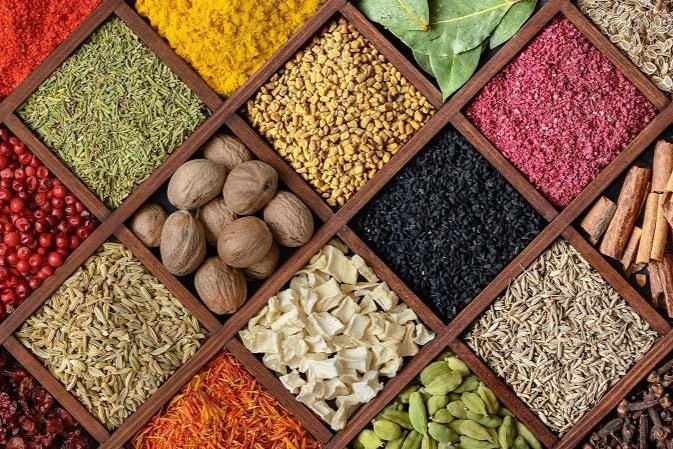Winter Foods That Heal: What to Eat for Immunity and Digestion
Winter can be both restorative and depleting. As the days grow shorter and colder, the body’s metabolic and immune systems must work harder to stay balanced. Cold air, reduced sunlight, holiday stress, and more time indoors all impact our digestion and immunity. Fortunately, food is one of our most powerful tools to strengthen the body from within.
This in-depth guide explores winter healing foods that nourish your immune system, soothe your gut, and support overall resilience during the colder months.
Why Winter Demands a Different Nutritional Strategy
In traditional systems like Chinese and Ayurvedic medicine, winter is a time to slow down and restore. From a modern perspective, this makes perfect sense:
Lower temperatures increase energy demands.
Reduced sunlight diminishes Vitamin D and melatonin balance.
Indoor heating can dry out the respiratory and digestive tract.
Holiday indulgences may stress the liver and gut microbiome.
Supporting digestion and immunity through food is not just about adding supplements—it’s about eating purposefully, with the season.
1. Warm, Cooked Foods for Digestive Fire
Digestion is like a fire—it thrives when fed gently, not overwhelmed. Cold salads, smoothies, and raw vegetables can dampen your digestive capacity in winter.
Focus On:
Soups and Stews: Slow-cooked meals are easier to digest and allow better absorption of nutrients.
Roasted Root Vegetables: Carrots, parsnips, turnips, pumpkin, and sweet potato are grounding, starchy, and rich in beta-carotene.
Porridge and Congee: Warm grains like oats, rice, and quinoa soothe the gut lining and support morning energy.
Why It Works:
Cooked foods require less energy to break down, support gut motility, and help maintain the body's core temperature.
2. Immune-Supportive Nutrients and Whole Foods
A well-functioning immune system needs an abundance of nutrients—especially antioxidants, trace minerals, and anti-inflammatory compounds.
Immune Superstars:
Vitamin C: Found in capsicum, kale, parsley, and fermented veggies (sauerkraut). Supports white blood cell activity.
Zinc: Vital for immune signaling. Get it from pumpkin seeds, chickpeas, lentils, shellfish.
Selenium: A powerful antioxidant that protects against oxidative stress. Brazil nuts, sunflower seeds, and tuna are rich sources.
Beta-glucans: Found in oats, barley, and medicinal mushrooms (shiitake, maitake, reishi), which help modulate immune function.
Probiotics and Prebiotics: Fermented foods (miso, kefir, kimchi) and fibers from leeks, cooked onions, and Jerusalem artichokes feed beneficial bacteria.
3. Spices and Herbs that Warm and Heal
Herbs and spices aren’t just for flavor—they are some of the most potent medicinal compounds available in your kitchen.
Top Winter Healing Spices:
Ginger: Anti-inflammatory, aids digestion, improves circulation.
Turmeric: Curcumin reduces systemic inflammation; pair with black pepper for better absorption.
Cinnamon: Balances blood sugar and warms the digestive system.
Garlic: Antiviral and antibacterial; supports immune defenses and gut microbiota.
Thyme and Oregano: Respiratory-supportive and antimicrobial.
Ways to Use:
Add ginger and turmeric to soups or stews.
Sip warm herbal teas like ginger-lemon, licorice root, or tulsi.
Roast vegetables with cinnamon and thyme.
4. Functional Healing Foods to Include Weekly
Beyond basic nutrition, some winter foods have specific therapeutic properties that support seasonal needs.
Functional Favorites:
Bone Broth: Rich in collagen, amino acids (glycine, proline), and minerals that support gut lining, joints, and skin.
Fermented Vegetables: Sauerkraut, kimchi, and pickled daikon aid digestion and introduce beneficial bacteria.
Cooked Dark Greens: Spinach, kale, and silverbeet are high in magnesium, folate, and vitamin K.
Wild-Caught Fatty Fish: Salmon, sardines, and mackerel provide omega-3s and Vitamin D, which regulate inflammation and mood.
Miso Soup: Fermented and mineral-rich, ideal for gut and immune support.
Pears and Cooked Apples (if tolerated): Gently stewed, these fruits moisten the lungs and provide gentle fiber without stressing digestion.
5. Hydration, But Make It Warm
People often forget to hydrate properly in winter, yet the dry indoor air and hot showers increase water loss. Cold water can shock the system; warm fluids are better.
Best Options:
Herbal Teas: Licorice, chamomile, peppermint, fennel, or marshmallow root support digestion and immunity.
Warm Water with Lemon (if tolerated): A gentle liver cleanser and morning hydrator.
Broths and Light Soups: Double as hydration and nourishment.
Avoid: Excess caffeine, which is drying; iced drinks, which slow digestion.
6. What to Limit or Avoid in Winter
Certain foods may challenge digestion or weaken immunity, especially when consumed in excess.
Watch For:
Refined Sugars: Suppress white blood cell activity and feed unfriendly gut microbes.
Alcohol: Disrupts gut lining and lowers immune resilience.
Cold or Raw Foods: Strain digestive fire, slow metabolism.
Ultra-Processed Snacks: Low in nutrients, high in inflammatory oils and preservatives.
Instead, focus on foods that feel grounding, warming, and nourishing.
Sample Winter Healing Meal Plan
Breakfast:
Warm steel-cut oats with stewed pears, cinnamon, and pumpkin seeds
Snack:
Miso broth with nori and green onions
Lunch:
Slow-cooked chicken and root veggie stew with turmeric and thyme
Fermented cabbage or kimchi on the side
Afternoon:
Ginger-lemon herbal tea with a few Brazil nuts
Dinner:
Wild salmon with roasted sweet potato and sautéed dark leafy greens
Chamomile tea before bed
Final Thoughts: Eat Seasonally, Heal Naturally
Your body intuitively knows what it needs in winter: warmth, rest, grounding nutrients, and comfort without excess. By eating seasonally, you align with both your biological rhythms and the healing properties of nature’s cold-weather bounty.
You don’t need to overhaul your diet—just shift toward foods that are warming, cooked, mineral-rich, and digestively supportive. Over time, these small changes add up to stronger immunity, calmer digestion, and a more resilient body.
“Let food be thy medicine and medicine be thy food.”







